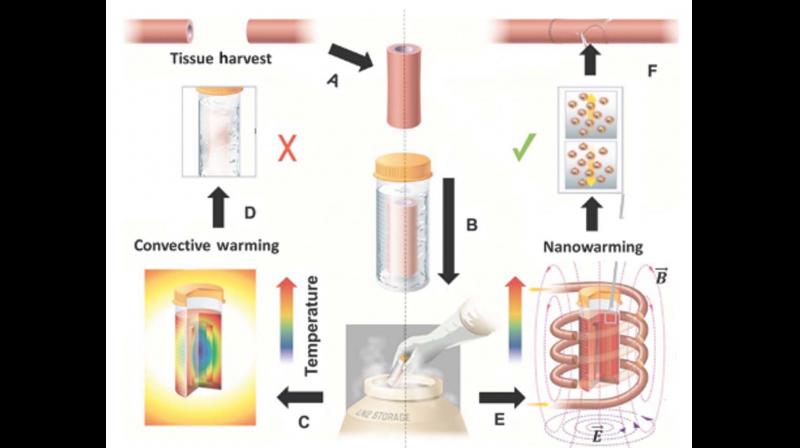Study finds way to preserve organs longer
Scientific research focused on organ preservation is most welcome, especially in India to cater to the high demands.

Chennai: Lack of awareness, religious beliefs and injuries caused to tissues and organs, are only a few among a number of reasons responsible for the enormous demand–supply gap in organs for transplantation globally. Therefore, scientific research focused on organ preservation is most welcome, especially in India to cater to the high demands. A study conducted by a group of researchers from Minnesota, and published in the ‘Science Translational Medicine’ a renowned Medical Journal, found a solution to the problem by making it possible for tissues and small organs to be preserved for 24 hours.
The maximum tolerable organ preservation for transplantation by hypothermic storage is typically four hours for heart and lungs, eight to 12 hours for liver, intestine, and pancreas, and up to 36 hours for kidney transplants, the study stated. In many cases, such limits actually prevent viable tissue or organs from reaching recipients, it added. However, if at least half these discarded organs were transplanted, it could imply that the waiting lists for these organs could be extinguished within two to three years, the researchers opined.
Stating that the ‘improved tissue cryopreservation using inductive heating of magnetic nanoparticles’ - according to study - could prevent the damage caused to the organs, a research student said, “The researchers have increased the ability of the cryopreservant, which would uniformly enter the tissues and therefore preserve it evenly.” With the city having only recently seen the first-of-its-kind donation when an organ was brought to Chennai from as far as Delhi, the hope of it becoming more common can only be made possible if such a study materialises. “We are looking at this in a big way as keeping organs for longer will give us more time to transplant as well. A lot of research is obviously going on and such researches are going to be very useful as time comes,” said Dr Sunil Shroff, Urologist and Transplant Surgeon in the city.
